Picture this: your living room transforms into a bustling marketplace, filled with customers, colorful products, and the sound of coins clinking. Welcome to the wonderful world of playing store! Kids have been setting up shop for eons but little do they know that playing this timeless game sparks all kinds of learning benefits that they will carry with them throughout their life. Playing store isn't just about selling goods – it is about collaboration, communication, math, and so much more! As your kids negotiate prices, trade goods, and master the art of customer service, they will be cultivating invaluable developmental skills that they can transfer into their real daily life.
In this blog, we're going to share some of the top benefits of store play for your child’s development and share some of our favorite tips for how to get started and how to extend the play.
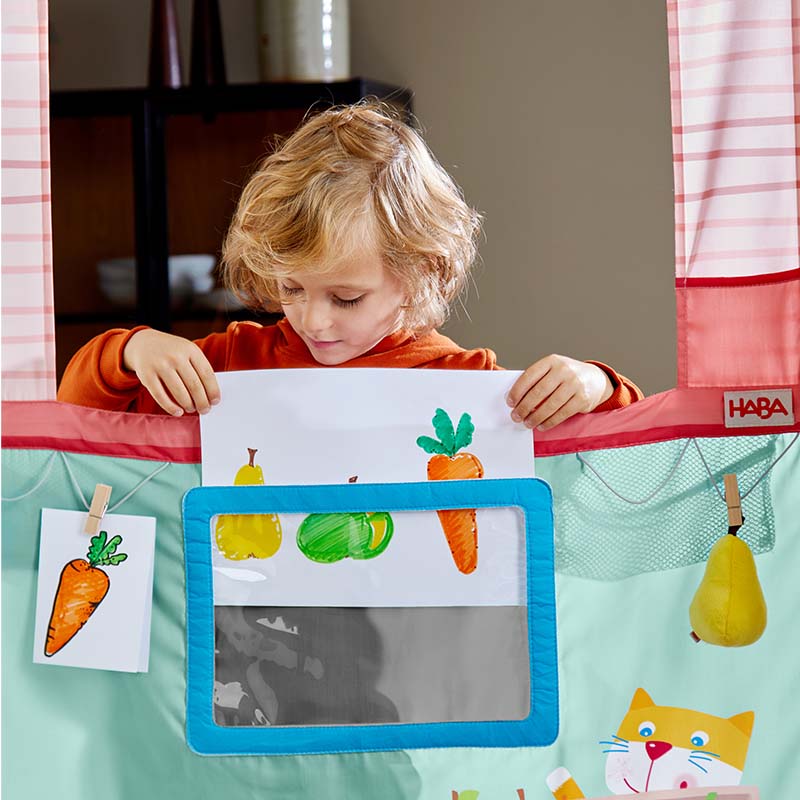
Retail Therapy, Kid-Style!
From stocking shelves with pretend goods to ringing up imaginary customers, the thrill of running a store never fails to captivate kids' imaginations. And as they play and have this interactive fun, they're also exercising their creativity, problem-solving skills, and social competence, and so much more!
Here are some of the key benefits when kids play store:
Develops Social Skills:"How can I help you?" Playing store encourages interaction and cooperation. As kids take on different roles such as the shopkeeper, customer, or cashier, they learn what each of those characters say and how to communicate effectively, negotiate, and take turns playing each role. With every exchange and interaction, kids learn more about social roles and develop empathy as they help meet the needs of their ‘customers.’ Not to mention, if you are playing along or listening nearby, it's always a great opportunity to interject some lessons about manners and the importance of the ‘magic words.’
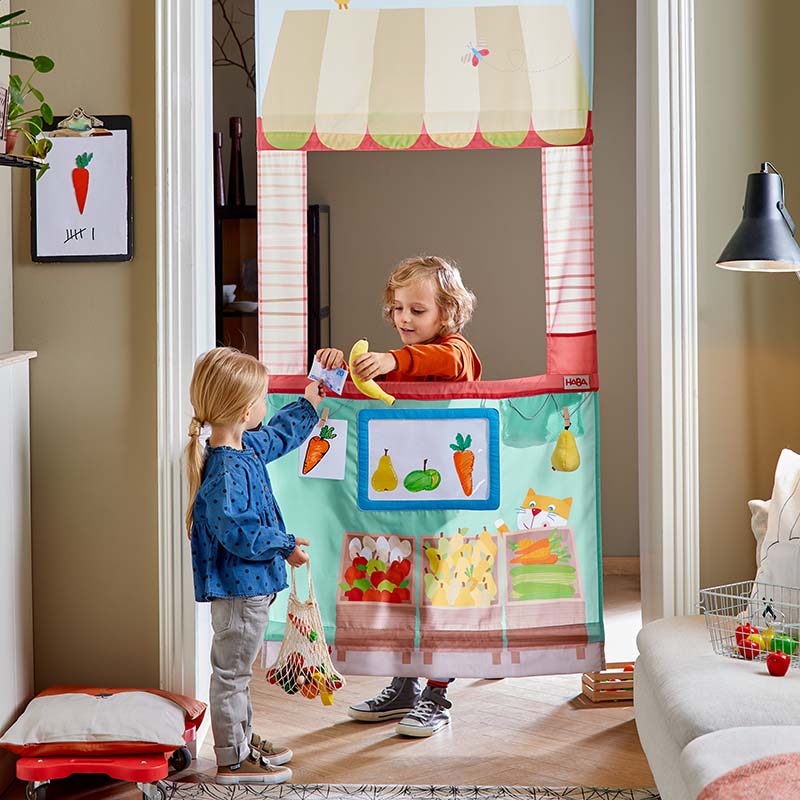
“May I have 4 eggs and 2 lemons, please.” Playing store provides so many opportunities for basic math from counting change to counting inventory. For younger kids, just counting their ‘stock’ will be a great way to practice counting and as kids get older and more comfortable with numbers, they can vary the prices of each item, get the correct amount to pay for that item, and then give the correct change, all very high level math processes.
Fosters Creativity and Imagination:
“We just got a shipment of Razzleberry Unicorn Shampoo.” Whether they're stocking shelves, designing signage, or inventing new products, playing store encourages creative thinking and imagination. As children play the roles of storekeeper, they invent character traits, storylines, and roles. Perhaps they will have a grocery store or a magical potion store for elves but whatever they decide, creativity will be enhanced encouraging self-expression.
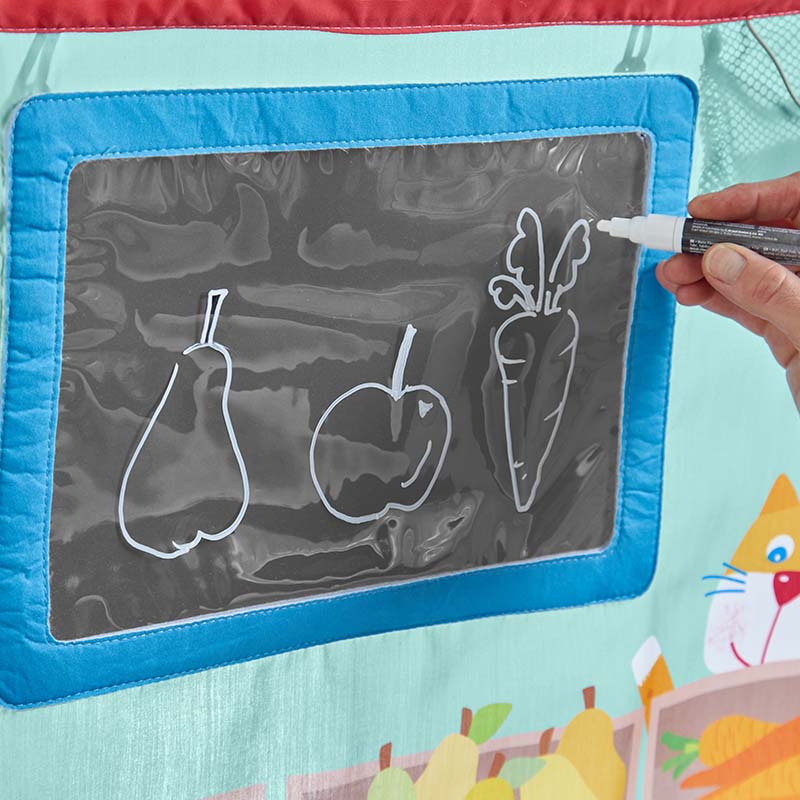
Promotes Language Development:
“I am not satisfied with this purchase.” Perhaps your children might not say that but they will be using a variety of other language constructions as they engage in conversation. From negotiating prices, describing products and special sales, and role-playing customer interactions, all of these verbal exchanges strengthen vocabulary, communication skills, and comprehension, laying the groundwork for literacy development and early reading.
Planning and Categorization Skills“All of the vegetables go here and the fruit goes here.” Setting up a well-oiled boutique requires some good planning and organization skills. Learning how to categorize is an incredibly important life skill that allows kids to make sense of their world and scaffolds much of the learning to come in a child’s life. By sorting money, products, and the retail space, these important skills begin to grow. And they might just translate to your children cleaning their room too!
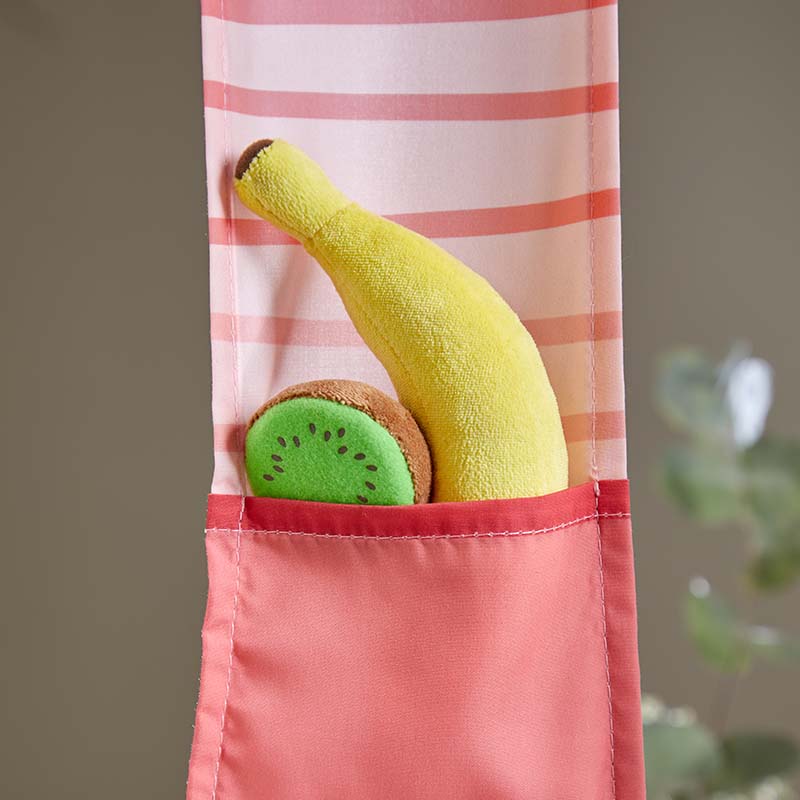
Setting Up Shop
So with all of these great benefits, we have some tips from the aisles on how to help encourage and extend this amazingly creative pretend play activity. First, we’d like to introduce our brand new Hanging Door Frame Play Store! With its sturdy construction and attention to detail, HABA's Play Store encourages hours of open-ended play. Whether children are role-playing as shopkeepers, customers, or entrepreneurs, the Hanging Door Frame Play Store offers a versatile and enriching play experience that can be set up and taken down in minutes. So once you hang up your store, what come next?
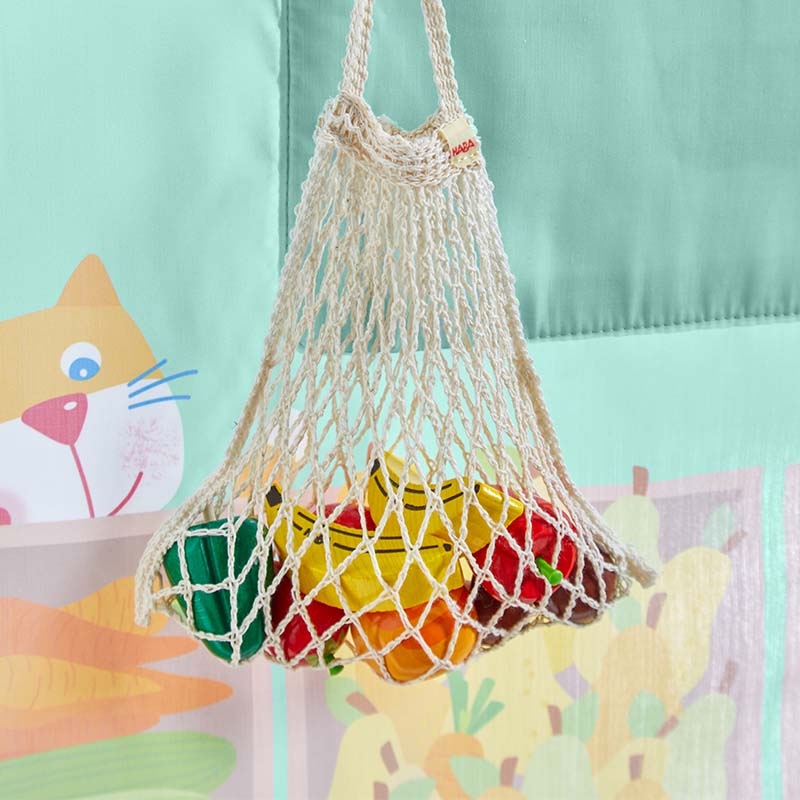
Create a Store Plan:
Is it a unicorn accessory store? A pet rock store or just a good old fashioned grocery? As your kids begin to plan out their store, ask them questions to help get them thinking. What kind of store would you like to make? What will it sell? Will you accept cash and credit cards? What are you going to name the shop? How will people carry their purchases home?
Set the Scene:
After hanging up the store, you can even further transform your space into a bustling marketplace by adding props like play money, toy groceries, and shopping baskets. Don't forget to create a catchy shop name and then make a sign to put in the sign display on the front of the store. Next, stock the shelves with goodies to sell based on the type of store your child has created. If it is a grocery store, you can stock the shelves with play food like our soft play food, or gather items you have in your cupboards. You can also recycle and look for empty cereal boxes and washed out empty canned foods, and empty drink bottles, etc. This also makes a great categorizing activity as kids learn to group the items in their store by category.
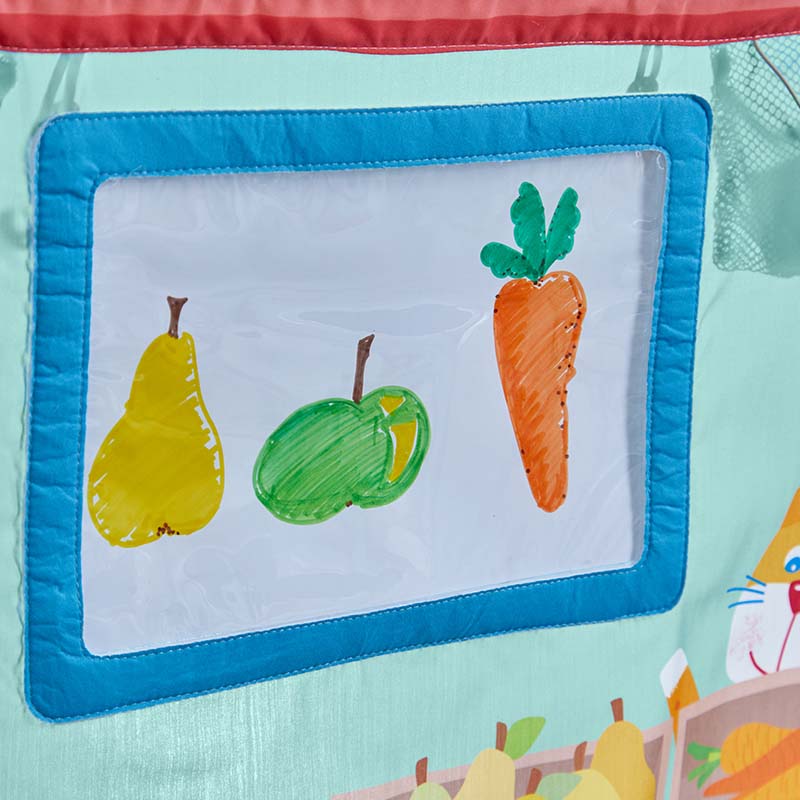
Make Some Money:
Now that you have stocked the shelves, it’s time to show them the money! This can be a creative project where children can design their own dollars and credit cards or you can use some money from games like Monopoly. You can also gather some change from the piggy bank and teach your kids all about the value of coins. If you have some expired credit cards around, put those in play as kids undoubtedly see credit cards in use more than cash these days and it is important for them to be exposed to a lot of different kinds of currency.
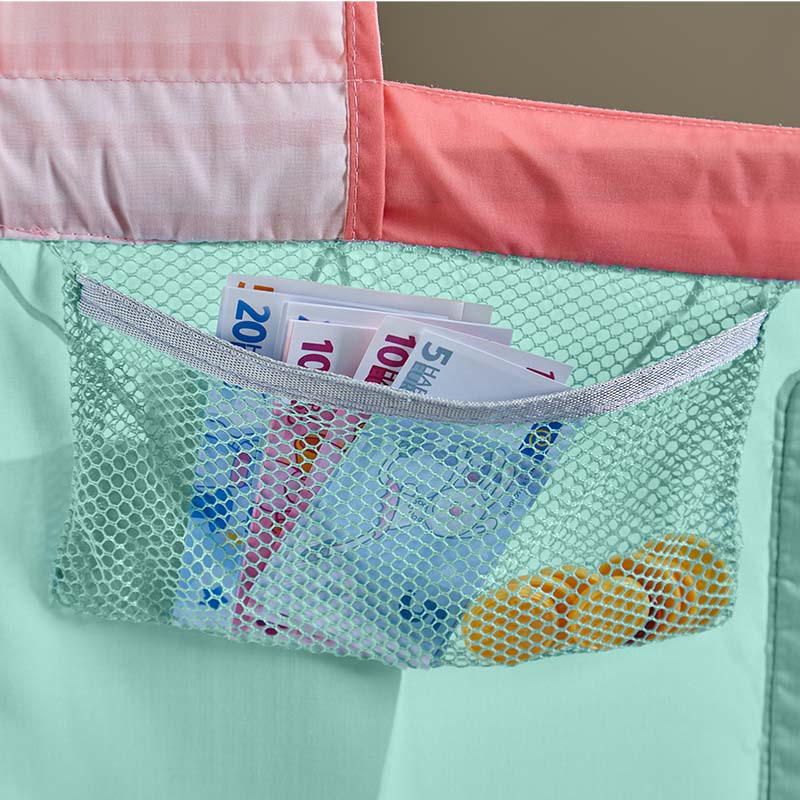
Get into Character:
Once you have all the pieces in place, it is time to play the part. Encourage your kids to embrace their inner shopkeeper, cashier, or customer. As they role-play each character, they will get a sense of all of the different perspectives involved in a store. Perhaps their dolls and stuffed animals will want to play a part in the shopping, the more the merrier!
Have Fun:
Playing store is something kids have an innate instinct for and as you let your kids explore, expand, and experience their unique play set ups, you will be amazed at how much fun they can have with a chore that sometimes isn’t quite as fun for us grownups! This activity can be super simple or it can expand into a multi-day sales event, but however it happens, we hope you and your family enjoy hours of memorable playtime with your little entrepreneurs.
We love to see kids at play! Tag us on Instagram @habausa for a chance to be featured!






















Leave a comment